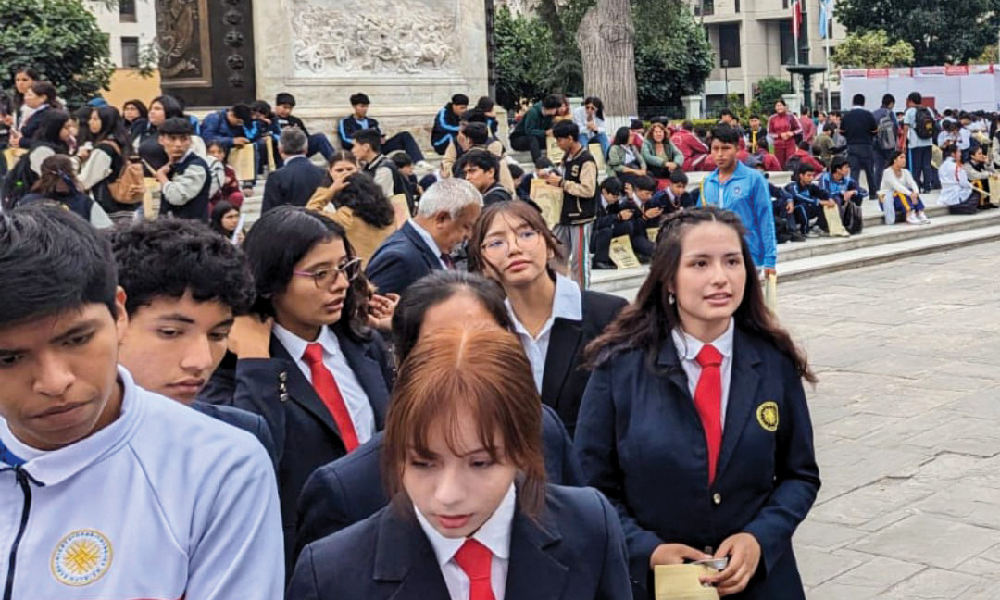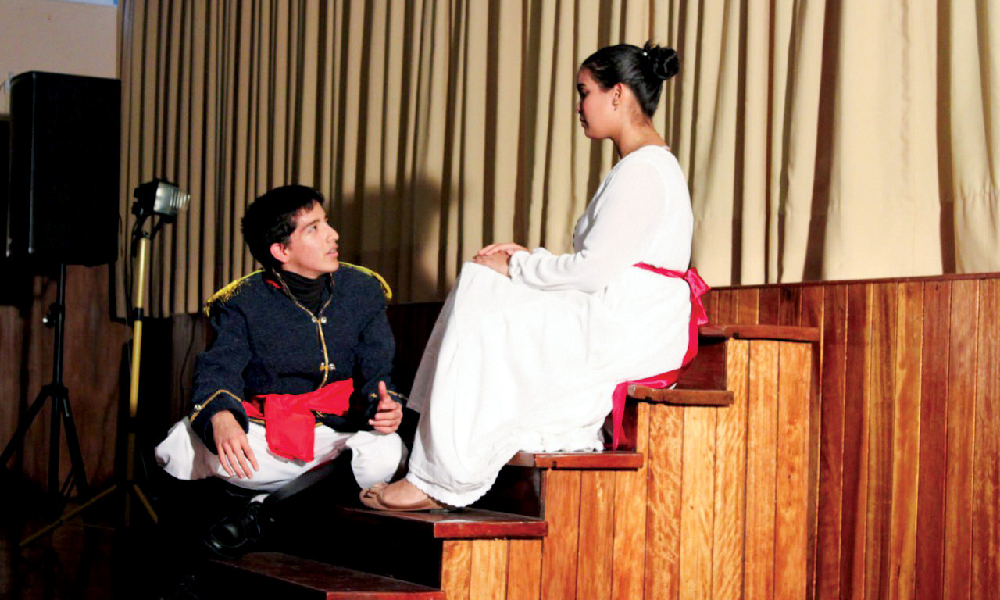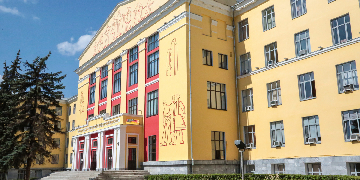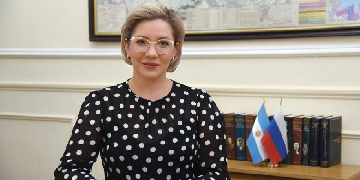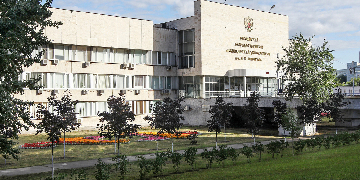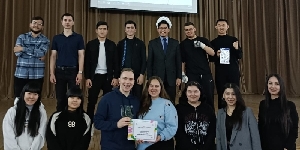Peruvian students have shown great interest in Russian education since the times of the Soviet Union. This is true for both school leavers and those who want to pursue Master's or PhD degrees. Many applicants belong to the “dynasties” of graduates of Russian (and Soviet) universities. Their grandparents and parents studied in Russia, and now they carry on an established family tradition. The Russian House in Lima conducts great outreach efforts among Peruvians, informing them about the opportunities to study at Russian universities, educational programs, and government scholarships. Acting Head of the Rossotrudnichestvo Representative Office in Lima (Peru) Alexandra Egorova talks about admission of Peruvian citizens in more detail.
Education in Russia for Peruvian Citizens
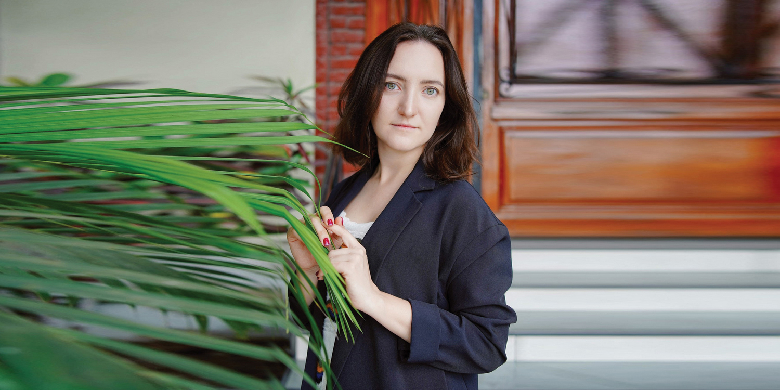
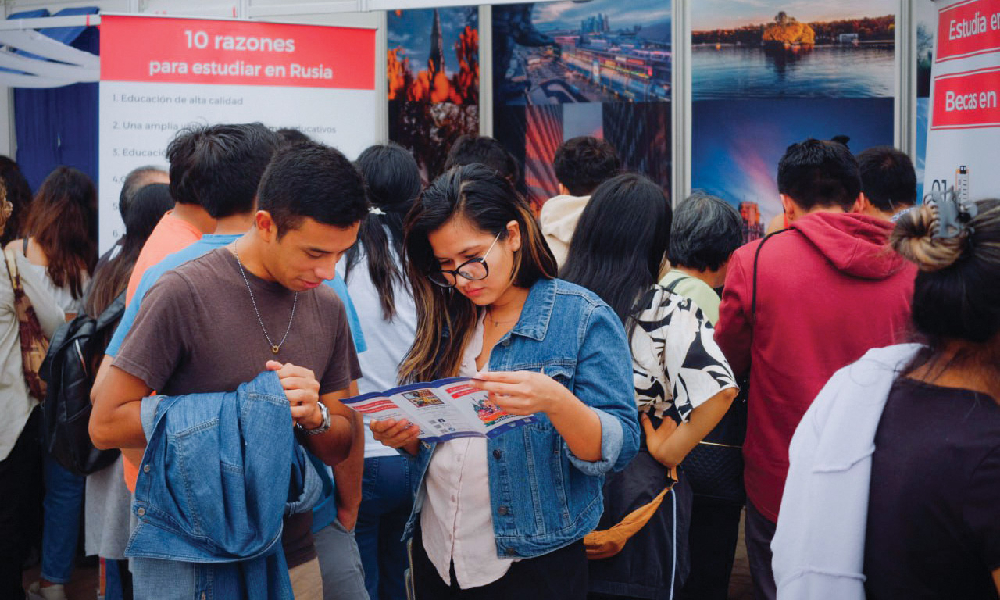
The Russian House in Lima really makes active efforts to inform Peruvians about educational opportunities. We regularly participate in education fairs held by the Congress of the republic and some municipalities of the city. We try to use all available communication channels such as social media, mass media, events and activities. We tell people not only about the opportunity to study within the Russian government quota, but also about other admission options. Some universities offer their own scholarships, hold Olympiads for admission, and offer special programs targeted at the countries of Latin America. Such alternatives are of particular importance to candidates applying for the most sought-after fields of study where the number of applicants per place is high.
We are willing to support the delegations of Russian universities coming to Peru. This is a great opportunity to tell Peruvians about the aspects of studying in Russia and the structure of the learning process in more detail. Young people often wonder what else universities can offer them in terms of public activity, lifestyle, and work while studying. They also want to know about the opportunity to apply their knowledge in practice: scientific laboratories, research centers, and project activities. In short, they want to get answers to all questions that can be given by people working at the university.
It is difficult to calculate the exact number of Peruvian students studying in Russia today, but our consulate issues around 300 student visas per year. In 2023, the Russian Government allocated 70 scholarships (quotas) to applicants from Peru. Besides, Peru has some agencies helping applicants apply on general terms, apart from quota.
Competitive selection
Those who wish to get a Russian Government scholarship and study in Russia for free must submit their applications within the established deadlines. Here it is important to note that you should be as careful as possible when filling in an application. We often return the application forms for completion or correction of small errors and discrepancies that can be very important when applying for a student visa.
After that, each candidate undergoes the competitive selection procedure. First of all, the competition committee looks at the documents confirming their previous education and grade point average. Interviews are less important. Nevertheless, interviews are also of importance because they allow us to assess the candidate's readiness to immerse themselves in life and the educational process in a foreign country. There are significant differences in the educational systems and approaches to learning in Peru and Russia, and yesterday’s school students often find themselves unable to manage their study load, to say nothing of the fact that moving literally to the other end of the world, to a foreign country, where everything is different, can be devastating. Add to this an intensive Russian language course, and you will get a challenge that definitely requires intensive training.
From year to year, we are always happy to have previously selected students who are ready to give some tips to current candidates – not about the procedures that depend on the Russian House, but about the experience of acquaintance with Russia or solving some problems that we do not even face because we are not foreigners and cannot assume that this can cause difficulties.
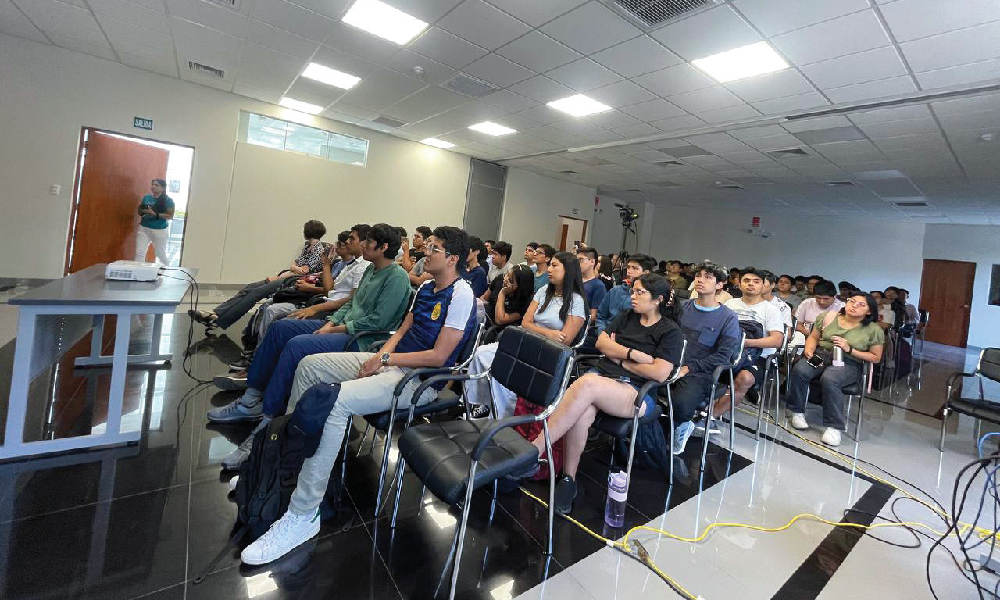
Popular fields of study
Most often, candidates apply for such fields of study as engineering, technology, and natural sciences. Peru has a well-developed mining industry and agricultural sector, a lot of construction and many engineering tasks. This means that a lot of people apply for geology, fields of study related to natural resources, and are engineers in a variety of industries. Agronomy and agriculture, biology, aquatic resources are also popular. IT and informatics, economics, and management are a little less popular. Humanities and social sciences are the least popular, and that is understandable in general because the national component is very important in such sciences as, for example, law, and in such a variation as between Russia and Peru, students will just lose grip on the legislation of their own country. Medical specialties stand out– firstly, there is actually a separate competition for them, and, secondly, medicine is one of the most difficult fields of study, however, one of the most popular, without exaggeration.
Career prospects
The prospects mostly depend on the candidates themselves. Selection within the quota is a fishing rod, and it is up to students to decide how they will use it or whether they will use it at all. We often meet the graduates of our universities. Most of them work in the important sectors of the economy – the mining industry and agriculture. At the top universities, Russian and Soviet graduates hold the positions of professors and deans. There are business people, in particular, heads of Russian-Peruvian companies. There are employees of the ministries, including the Ministry of Health and the Ministry of Foreign Affairs. Foreign education in general is rather highly valued. Several times a month, we get requests from the local authority for supervision in education to confirm that one or another university had the right to issue diplomas at some point in time – this is a part of the recognition procedure.
